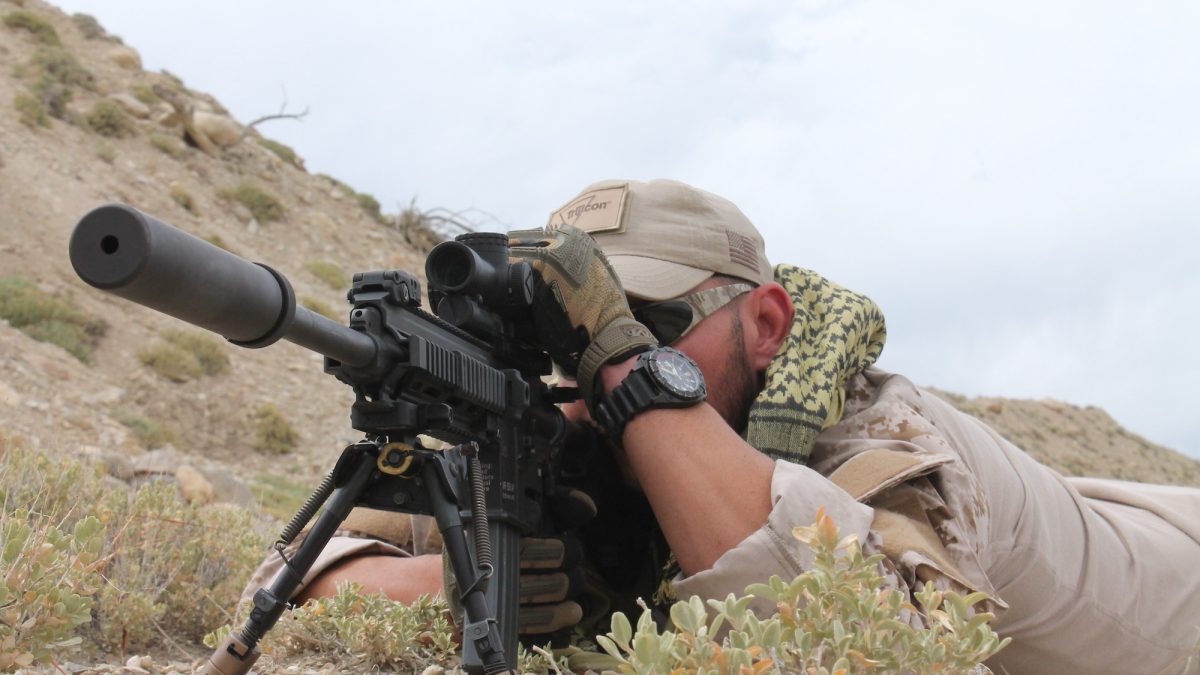By Salam Fatohi
Shooting suppressed is as normalized among the shooting and hunting community as TikTok is with Gen Z. What was a rarity as recently as a decade ago, it is now a normal occurrence to find a suppressor-equipped firearm at a local range or hunting camp.
What is the process to legally acquire a suppressor or silencer? The oversimplified version is to legally buy one from a retailer and register it. The process is mostly straightforward but does require a $200 transfer tax and a significant processing and wait time. This has been the procedure since the National Firearms Act (NFA) was enacted in 1934.
For many years, the expectation was to “buy it and forget it.” Customers were unlikely to physically grasp their paid-in-full item for several months or a year. The Bureau of Alcohol, Tobacco, Firearms and Explosives (ATF) has received exponentially more Form 4s for silencers as their popularity has grown. Through the combined efforts of NSSF, the firearm industry, and ATF, however, the process has dramatically improved beyond anyone’s expectations.
Record Ownership
Today, the ATF is processing suppressor applications in not only record time but in some instances the same day. Long gone is the wait time barrier and it is drawing shooters and hunters to purchase a suppressor who had previously dreaded long wait time to purchase one. As a result, silencer registration metrics are off the chart.
The now discontinued ATF Firearms Commerce in the United States report displayed the number of silencers that were registered in each state. The May 2021 edition reported 2,664,774 silencers in the U.S., more than doubling the 1.3 million silencers disclosed by the Department of Justice (DOJ) in 2017.
In a recent Freedom of Information Act request (FOIA), NSSF received from ATF the additional number of silencers from May 2021 to July 2024. An incredible 2,193,123 more suppressors are protecting the hearing of hunters and shooters. That means a whopping 4.86 million silencers and counting are in possession by law-abiding Americans.
To review, the NFA started requiring the registration of silencers in 1934 and up to May 2021 had 2.66 million suppressors on the books. Now American gun owners are on track to exceed 87 years of registered silencers in just the latest three years.
What’s Next?
The NSSF-supported Hearing Protection Act, H.R. 152 introduced by U.S. Rep. Jeff Duncan (R-S.C.) and S. 401 introduced by U.S. Sen. Mike Crapo (R-Idaho), would remove silencers from the NFA, eliminate the $200 tax stamp and allow firearm owners to purchase a silencer, like any other firearm, after an FBI National Instant Criminal Background Check System (NICS) verification. This would allow more gun owners to more easily acquire a suppressor and safely reduce the report of their firearms to hearing-safe levels without the additional $200 tax. Suppressors are already legal to own in 42 states and 41 states allow them for hunting.
The NSSF-supported Tax Stamp Revenue Transfer for Wildlife and Recreation Act, H.R. 6352 introduced by Rep. Blake Moore (R-Utah), offers an alternative approach. This bill would reallocate the funding generated from suppressor tax stamps. Fifteen percent of the revenue would go to the ATF’s NFA division to fund and further improve the processing of Form 4s. The remaining 85 percent would go to U.S. Fish and Wildlife Service (USFWS) and be split between the Pittman-Robertson Wildlife Restoration Trust Fund and a portion dedicated to recreational shooting range development.
Gun ownership has skyrocketed over the past several years, including more than 22.3 million new first-time gun owners since 2020. Likewise, as millions of Americans have become more knowledgeable and familiar with firearms, they’ve also become more familiar with what a suppressor is and isn’t. Suppressors, or “silencers” as they are called in the law, are nothing like the way they are characterized in Hollywood films. They do not silence the firearm’s report. They act like a muffler to reduce the sound level.
Firearm legislation is always going to divide people and face gridlock in Washington, D.C., and in state capitals across the country. No matter how logical it would be to streamline the process of purchasing a firearm suppressor or better allocate the tax stamp revenue, getting Congress to act will be a Herculean effort.
As it has with gun ownership more broadly, the tide has turned on suppressor ownership, too.
Read the full article here


